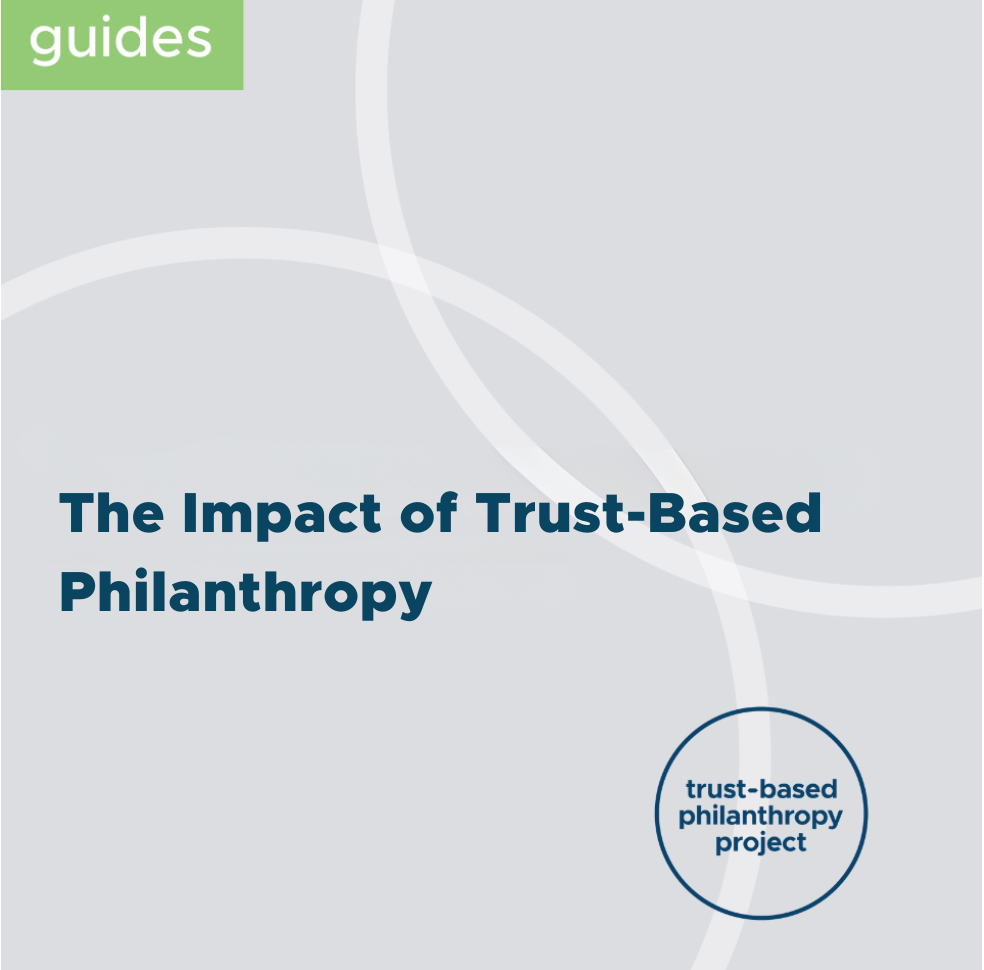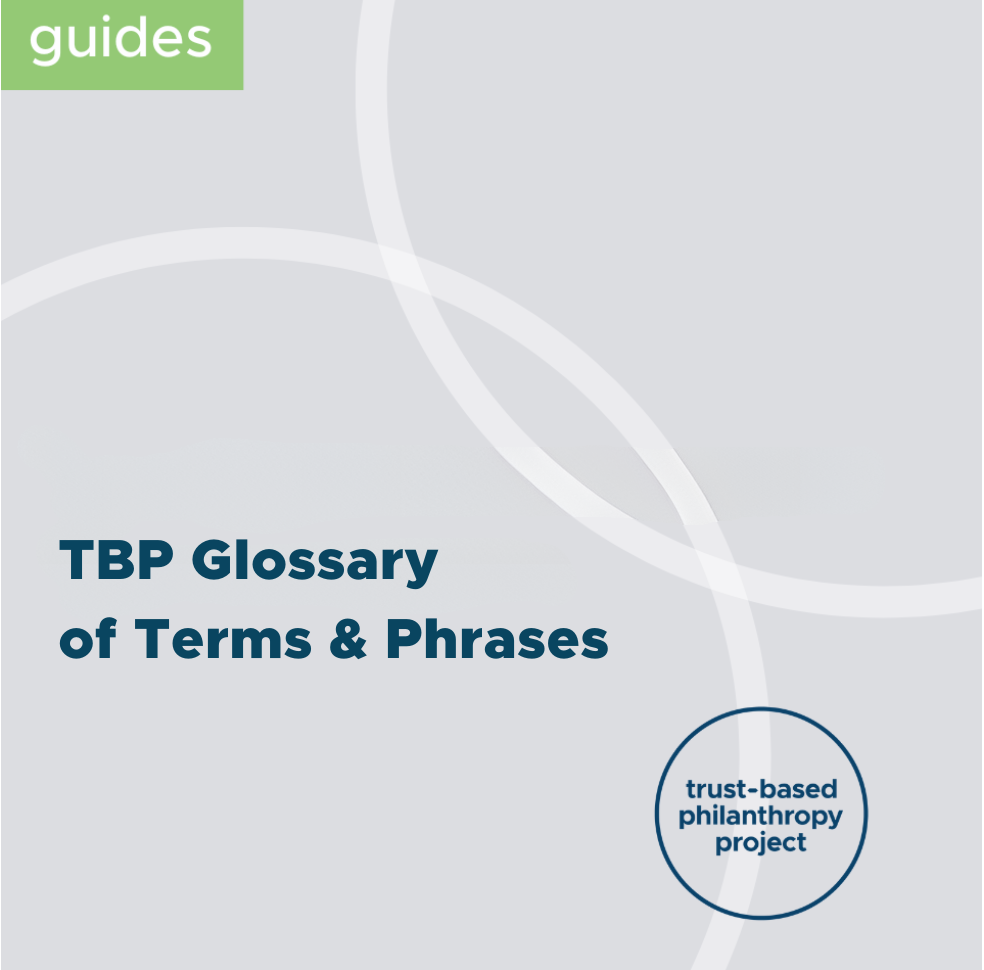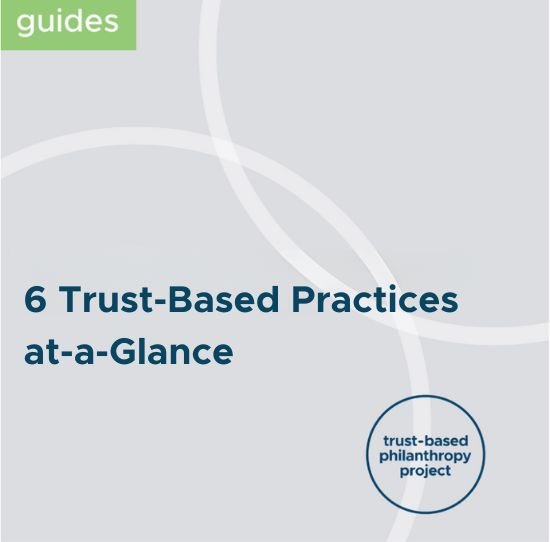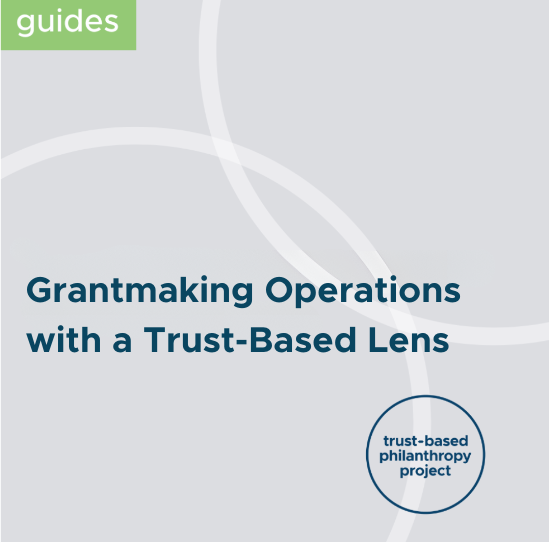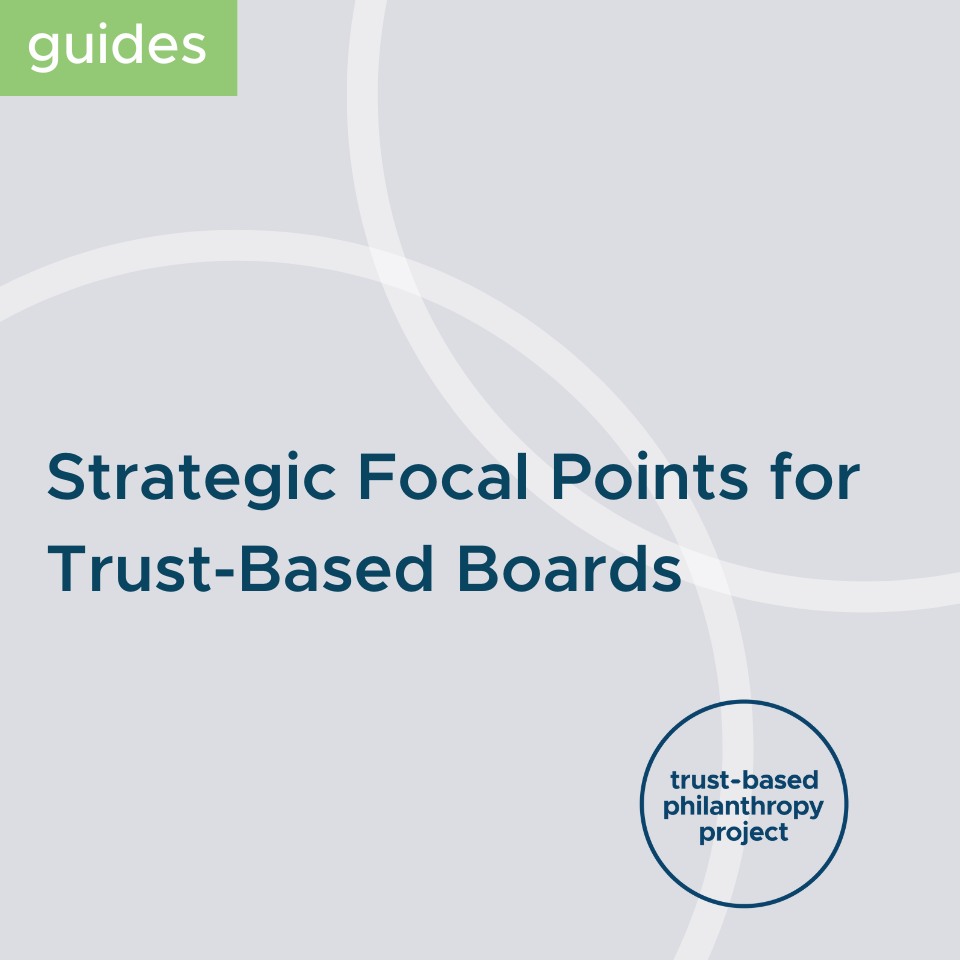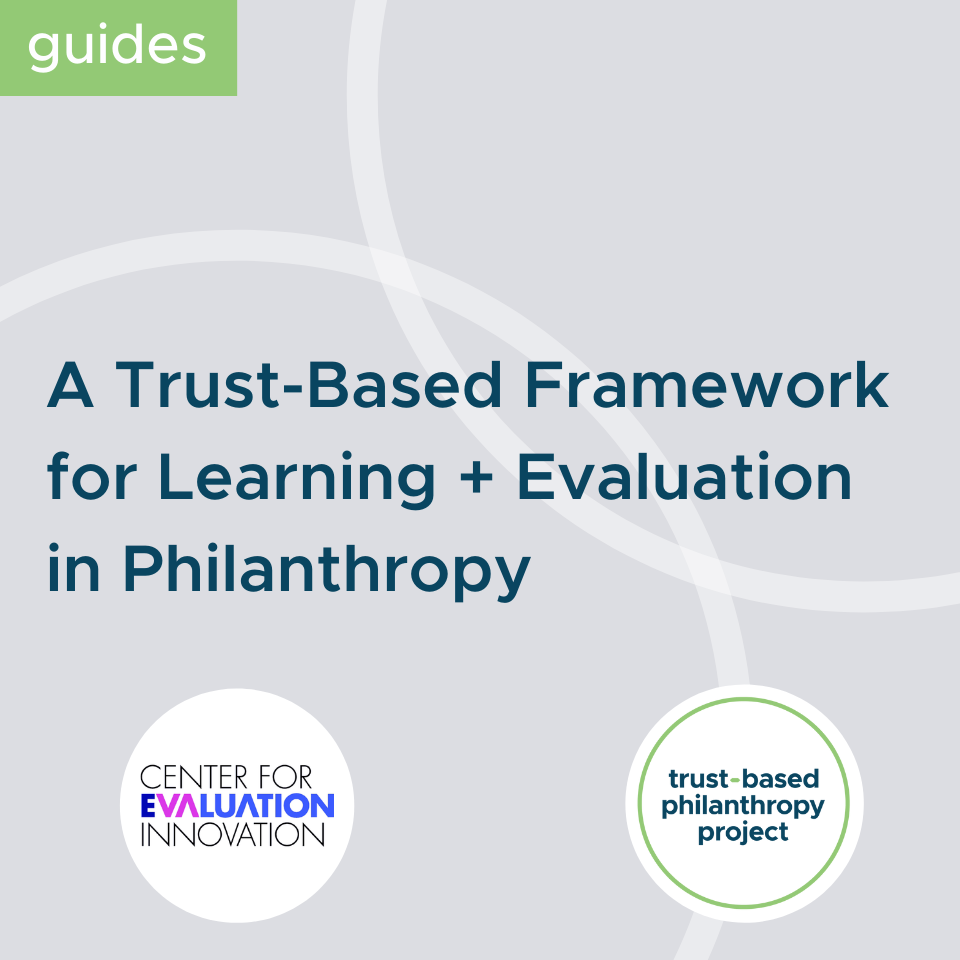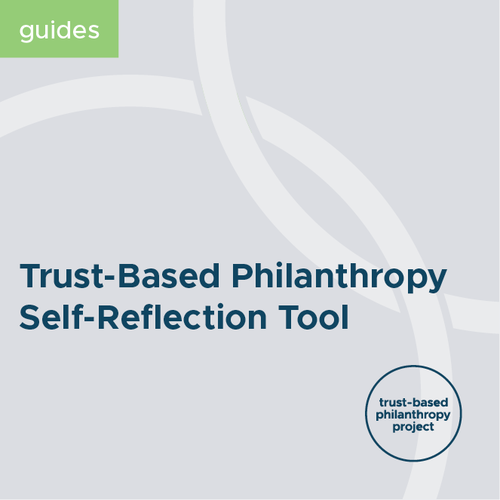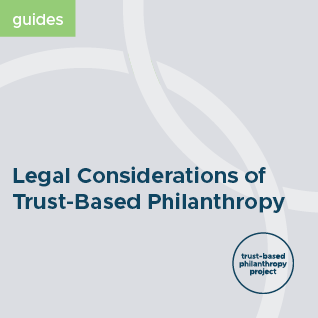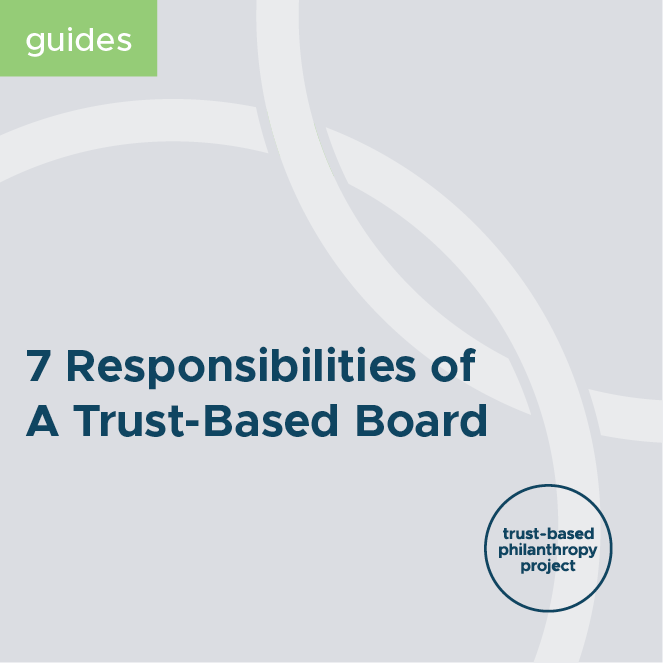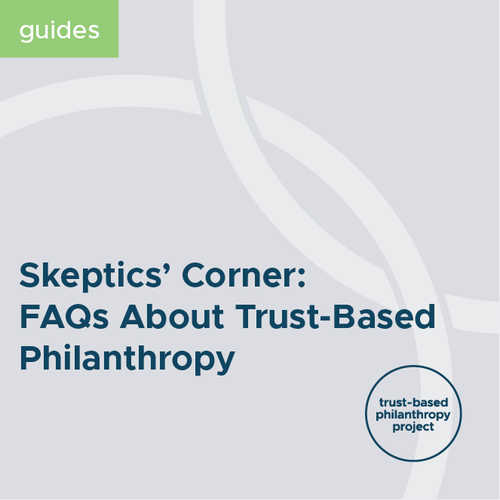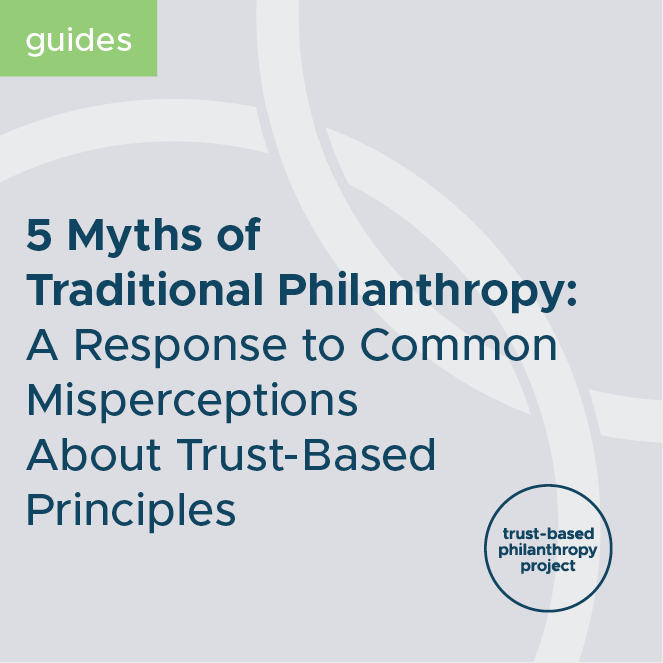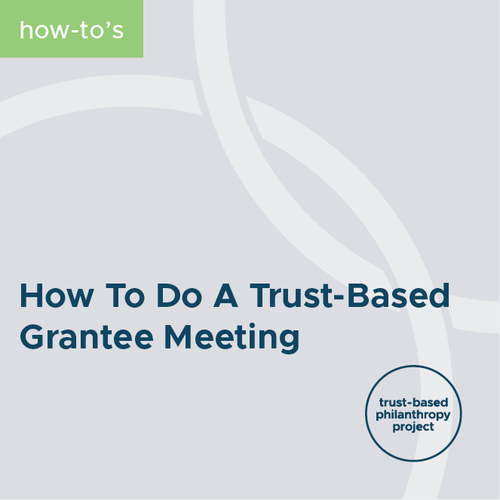Guides & How-To’s
This collection of PDFs offers insights into different aspects of trust-based philanthropy, from how to run a trust-based meeting, to how to debunk misconceptions about a trust-based approach. Download the specific guide you need, or read them all!
Note: By using or accessing any materials produced by the Trust-Based Philanthropy Project, you’re agreeing to the spirit and terms of our user agreement. If you have questions, need assistance accessing our materials in a different format, or would like to share feedback on how we can improve your accessibility, please reach out to us at hello@trustbasedphilanthropy.org.
This guide gives an overview of the impact made possible when shifting to a trust-based approach, including impact on nonprofits, funders, communities, and the social sector. Trust-based funders are consistently seeing various opportunities for reflection, assessment, and positive outcomes–painting a bigger-picture of the positive impact on organizations and the social sector ecosphere.
This guide outlines five common myths and misperceptions that come up in discussions about trust-based principles, and offers clear counterpoints in response.
This two-page guide, invites you to reimagine the program officer role in a radically different way - away from conventional norms of compliance and oversight, and towards trust-based norms of partnership, collaboration, and service.
Look through this guide to find a compilation of the most commonly used terms and phrases used in the context of trust-based philanthropy and their definitions.
This one-pager provides a simple venn diagram of the similarities and differences between trust-based philanthropy and racial equity.
This guide provides insight on what it really means to do the homework and outlines action steps funders can take to meaningfully incorporate this practice in their organizational structure, culture, and relationships.
This one-pager outlines concrete steps funders can take today in their organization’s culture, structure, and leadership to support their grant partners beyond the check
This guide provides a 2-page overview of the trust-based philanthropy approach, including the six practices of trust-based grantmaking.
While two institutions may share the same mission, how they carry it out can vary widely. Trust-based philanthropy flips the script on conventional philanthropy by promoting a culture of sharing power, centering relationships, and fostering mutual accountability. While the two approaches are not always diametrically opposed, this overview highlights some key areas of distinction wherein trust-based philanthropy reimagines conventional norms.
This guide draws on the experiences of funders who have applied a trust-based lens to their grantmaking operations to identify the key ways that grantmaking practitioners can operationalize their grantmaking processes in ways that center the needs of their grant partners.
This one-pager provides a snapshot of some of the key milestones for trust-based transformation and how they connect to your organizational culture, structures, leadership, and practices.
This guide outlines the four, non-mutually exclusive focal points—learning, strategy, grantmaking, and imagination—in which foundation boards can direct their time and attention when stewarding trust-based organizations.
This guide introduces a framework for evaluation and learning grounded in trust and mutual accountability. It offers funders three learning stances to adopt for a more nuanced, adaptive understanding of impact.
This guide is intended for grantmaking practitioners who are ready to live into their values to cultivate trust-based philanthropy holistically, across the four dimensions of this work: culture, structures, leadership, and grantmaking practices.
This self-reflection tool is designed to help funders at various stages of the trust-based journey examine how trust shows up across your organization, and identify areas that may need more inquiry, refinement, or deepening.
This guide offers insights and practical recommendations on shifting from traditional to trust-based grantmaking.
This resource offers seven considerations for boards who want to advance trust-based philanthropic practice.
This guide outlines the top ten most frequently asked questions about how foundations can adopt a trust-based approach, and a collection of answers based on contributions from many trust-based practitioners.
This guide outlines five common myths and misperceptions that come up in discussions about trust-based principles, and offers clear counterpoints in response.
This funder-specific tool offers a checklist of trust-based considerations before, during, and after grantee check-in meetings.
This 2-pager overview offers six considerations for anyone—regardless of role or position—who wants to proactively build relationships of mutual trust.

